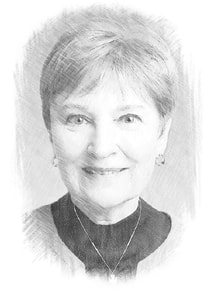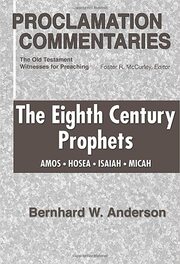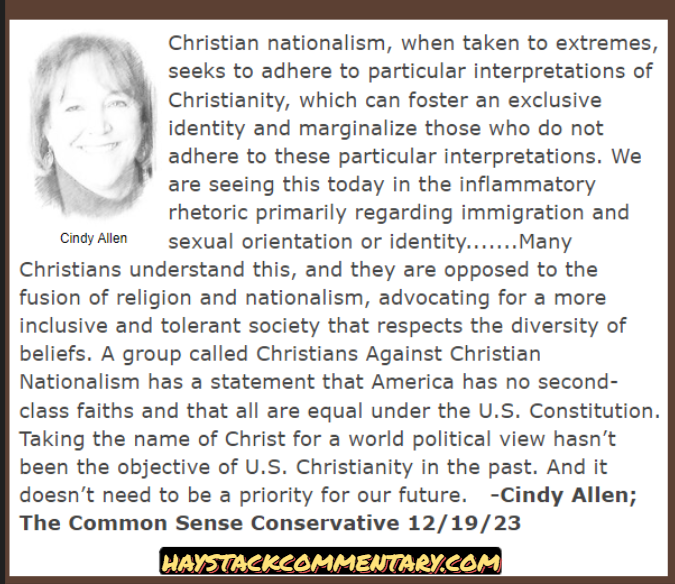- Jann Aldredge-Clanton - Bruce Allen - Cindy Allen - David Allen - Jason K Allen - Sampson Amoateng - Bernhard W Anderson -
==jann aldredge-clanton======
Jann Aldredge-Clanton (born 1946 in Abilene, Texas) is an ordained Christian minister, author, teacher, and chaplain, who leads workshops and conferences throughout the United States. She has authored nine books, three hymnbooks, a children's musical, and a children's songbook. She has also published many articles in publications such as Christian Feminism Today, The Journal of Pastoral Care, The Christian Ministry, and Patheos. She specializes in feminist theology and inclusive worship resources. Ordained in the Alliance of Baptists, she ministers in ecumenical and interfaith settings. She serves as co-chair of the national ecumenical, multicultural Equity for Women in the Church Community, on the council of Evangelical and Ecumenical Women's Caucus-Christian Feminism Today; adjunct professor at Richland College in Dallas, Texas; and on the Dallas Workers’ Rights Board.
 Jonathan Merritt
Jonathan Merritt
When Jann Aldredge-Clanton enrolled at Southwestern Baptist Theological Seminary in 1982, she considered herself a bona fide evangelical Christian with a reverence for the Bible and a love for the church. It soon became clear that neither her Southern Baptist denomination nor the wider evangelical world held much space for her. In her preaching class, male students who objected to women teaching men criticized her sermons. One male student in another class dismissively asked if she came to seminary to get an “M-R-S” degree. Her growing interest in feminist theology made her feel like an outsider among her conservative classmates, who felt such ideas were heretical. As graduation neared in 1985, Aldredge-Clanton was informed by the seminary’s placement office that it only sought to place males as pastors. After her applications to evangelical churches across Texas went unanswered, she took the hint. “It had finally been made clear to me that as an ordained woman and a feminist, I was on the outs as a Southern Baptist and in the evangelical world,” she told me recently, “so I took a job as an associate minister at a United Methodist church instead.” --Jonathan Merritt; Religion News Service; Can evangelicalism survive its white, straight, conservative victory? 5.2.23
 Jann Aldredge-Clanton Files
Jann Aldredge-Clanton Files
When my own Baptist tradition excluded me, Methodists opened wide their arms to welcome my pastoral ministry. Methodists could apply the liberating message of Jesus to me and other women barred from ministry by traditional biblical misinterpretations, so why would they not apply this same liberating message to LGBTQ people?
Millions of United Methodists worldwide, however, do support full inclusion of LGBTQ people, and many have written powerful statements based on the Bible. Many others continue to take biblical passages out of context, instead of using established hermeneutical principles they apply to other parts of Scripture, to back the “Traditional Plan” the General Conference adopted to reinforce the ban on LBGTQ clergy ordination and same-sex marriage. -Jann Aldredge Clanton; Baptist News Global; 3.19.19
Millions of United Methodists worldwide, however, do support full inclusion of LGBTQ people, and many have written powerful statements based on the Bible. Many others continue to take biblical passages out of context, instead of using established hermeneutical principles they apply to other parts of Scripture, to back the “Traditional Plan” the General Conference adopted to reinforce the ban on LBGTQ clergy ordination and same-sex marriage. -Jann Aldredge Clanton; Baptist News Global; 3.19.19
==Bruce Allen======
Bruce Allen is gifted in the prophetic teaching ministry. He helped pioneer Storehouse Celebration Church in Seattle, Real Life Christian Center in California, and was the administrator of Storehouse School of Ministry in the Northwest. He is the author of two popular books Promise of the Third Day and Prophetic Promise of the Seventh Day.

Bruce Allen with Forgotten Ministries International says their ministry often sees how blasphemy laws are used to promote state-sanctioned targeting of minority Christians. “Christians are targeted for blasphemy accusations even when they have not perpetrated any blasphemy. But because these laws exist in the book, they’ll use it indiscriminately even when there’s no evidence of blasphemy.”
Allen adds, “Another point that the fact sheet makes is that blasphemy laws encourage individuals and non-state actors to seek retribution against alleged blasphemers.
“Many times, the person who is accused of blasphemy doesn’t even stand a chance to have their day in court. They’re killed in the street outside their home the day [or] the day after the blasphemy charge is even leveled. It’s a vigilante mob violence mentality.”
FMI saw this most recently in the case of a 6-year-old Christian boy in Pakistan who was violently attacked by his Muslim teacher and hospitalized for alleged blasphemy.
Please pray for blasphemy laws to be repealed and for oppressors to have their eyes opened to Jesus Christ.
Allen says, “We want to keep this beleaguered, oppressed Christian community in prayer. Lift them up and say, ‘Lord, may they be walking in the power of your Spirit to follow your instructions because we can’t do that left to our own devices.’” - Lyndsey Koh; Mission News Network; Since 2020, blasphemy laws around the world up 13% 9.21.23
Allen adds, “Another point that the fact sheet makes is that blasphemy laws encourage individuals and non-state actors to seek retribution against alleged blasphemers.
“Many times, the person who is accused of blasphemy doesn’t even stand a chance to have their day in court. They’re killed in the street outside their home the day [or] the day after the blasphemy charge is even leveled. It’s a vigilante mob violence mentality.”
FMI saw this most recently in the case of a 6-year-old Christian boy in Pakistan who was violently attacked by his Muslim teacher and hospitalized for alleged blasphemy.
Please pray for blasphemy laws to be repealed and for oppressors to have their eyes opened to Jesus Christ.
Allen says, “We want to keep this beleaguered, oppressed Christian community in prayer. Lift them up and say, ‘Lord, may they be walking in the power of your Spirit to follow your instructions because we can’t do that left to our own devices.’” - Lyndsey Koh; Mission News Network; Since 2020, blasphemy laws around the world up 13% 9.21.23
 Bruce Allen
Bruce Allen
Many new people are moving here. We’ve had an influx of several Muslim families and we see new mosques being built. So, this migration is a great challenge, but it’s also a great opportunity........The answers to prayer that the people see astound them. They go, ‘Jesus does this? Jesus cares for me? That’s very different than the Muslim concept of prayer.”...“If it’s a women’s ministry that’s, let’s say taking place in a home, more women will be encouraged [to come]. ‘Well, I’m just going over and having tea at my friend’s home,’ rather than ‘I’m going to church on Sunday morning,’ and people or friends from the mosque will be going, ‘What are you doing?’......But no one’s going to question her going to her friend’s home for tea and having a conversation about Jesus or engaging in Bible study because it’s outside the structural context of a church. So, we see some great things happening already and Muslims coming to know Christ.”
--Bruce Allen; Forghotten Ministries International; On womens minsitires in Indonesia Feb 2018
--Bruce Allen; Forghotten Ministries International; On womens minsitires in Indonesia Feb 2018
==cindy allen======
|
COLUMN: Christian nationalism, once fringe, now seen as more mainstream in conservative politics As Christmas Day draws near and the season of perpetual hope is in full swing, it comes a time for many to reflect on the previous year and to start setting goals for the next year. As all years seem to be since the dawn of this century, it’s been a tough political one – and many, including myself, are not looking forward to 2024, which includes a presidential election. I find myself often feeling hopeless that our country will have more appealing choices than we’ve had the past few election cycles. All across our political spectrum, political parties and ideologies are gearing up for a combative and divisive election cycle once again. (Cindy Allen/Talequah Daily Press 12/21/23) Read More>>>>> |
==david l allen======
David Allen served at Southwestern Baptist Theological Seminary in Fort Worth, Texas from 2004 to 2006, as the dean of the School of Theology. In August of 2016, he became the founding dean of the new School of Preaching at Southwestern Baptist Theological Seminary. Currently, he serves as distinguished professor of practical theology and dean of the Adrian Rogers Center for Biblical Preaching at Mid-America Baptist Theological Seminary in Memphis, Tenn., and is the founder and editor-in-chief of PreachingCoach.
Allen came to Christ at the age of 9 and responded to God’s call to preach as a junior in high school. He attended The Criswell College in Dallas (1978 graduate), and later taught adjunctively (1985-1998) and full time (1998-2004) as the W. A. Criswell Chair of Preaching. His first church staff position was minister of students at the newly founded Prestonwood Baptist Church in Dallas in 1977, where he served for five years while completing college and seminary. Prestonwood was founded in January 1977, and he came on staff as the first staff member in February. For 37 years, Allen was married to Sherri, who died of cancer in 2015. They had four children: Jeremy, Jared, Melody, and Kali. Jared’s wife is Joelle, and they have five wonderful children: Judah, Lydia, Hudson, Ishmael, and Maranatha. He married Kate Finley in October 2016. He earned the MDiv degree from Southwestern in 1981, and had the privilege of serving on the Board of Trustees at SWBTS for 12 years, including serving as vice-chairman from 2001-2003 and chairman of the board from 2003-2004.
He wrote The Extent of the Atonement: A Historical and Critical Review published by B&H Academic. He also wrote a commentary on Job, a volume in the Christ-Centered Exposition series published by B&H. He is the editor-in-chief of the preaching website preachingsource.com.
Allen came to Christ at the age of 9 and responded to God’s call to preach as a junior in high school. He attended The Criswell College in Dallas (1978 graduate), and later taught adjunctively (1985-1998) and full time (1998-2004) as the W. A. Criswell Chair of Preaching. His first church staff position was minister of students at the newly founded Prestonwood Baptist Church in Dallas in 1977, where he served for five years while completing college and seminary. Prestonwood was founded in January 1977, and he came on staff as the first staff member in February. For 37 years, Allen was married to Sherri, who died of cancer in 2015. They had four children: Jeremy, Jared, Melody, and Kali. Jared’s wife is Joelle, and they have five wonderful children: Judah, Lydia, Hudson, Ishmael, and Maranatha. He married Kate Finley in October 2016. He earned the MDiv degree from Southwestern in 1981, and had the privilege of serving on the Board of Trustees at SWBTS for 12 years, including serving as vice-chairman from 2001-2003 and chairman of the board from 2003-2004.
He wrote The Extent of the Atonement: A Historical and Critical Review published by B&H Academic. He also wrote a commentary on Job, a volume in the Christ-Centered Exposition series published by B&H. He is the editor-in-chief of the preaching website preachingsource.com.
 David L Allen
David L Allen
The “shepherds” are the spiritual leaders, including the king, the priests, and the prophets.
The shepherd analogy is the pivotal analogy of the Old Testament for God’s relationship to his people. This term is the personal analogy used by Jesus in the Gospels. He said: “I am the good shepherd.” It is the proper analogy used in the epistles to describe the role of the pastor. Jeremiah uses a stunning word in Hebrew to describe these shepherds: ba’ar – “stupid, senseless.” The word is used of an animal that is deficient in moral and spiritual things. It refers to those who do not fear the Lord or desire his wisdom. They are senseless and stupid. Jeremiah would agree with Forrest Gump: “stupid is as stupid does.” How did this deplorable condition occur? They became stupid because they did not darash, “seek” the Lord. This word is the focal point of the verse. It occurs 165 times in the OT, mostly in the sense of seeking after the Lord. It means “to seek with diligence.” Three primary aspects are observed in the various contextual uses of this word.
There is the volitional aspect. Ezra 7:10 – “Ezra determined in his heart to seek the law of the Lord….” There is the emotional aspect. Psalm 119:10: “with all my heart I have sought you.” There is the intellectual aspect. Isaiah 34:16 – “Seek from the book of the Lord.” Darash denotes the element of “research, investigation, study.” Two consequences follow from not “seeking” the Lord. First, the shepherds shall not sachal – “prosper.” This word denotes the process of thinking through a complex arrangement of thoughts resulting in wise action and use of practical common sense. The end result: success. But in Jeremiah 10:21, the shepherds have no success. In fact, all their flocks will be putz (poots) – “scattered,” a favorite word of Jeremiah.
---David Allen; Stupid Shepherds and Scattered Sheep 8.21.19
The shepherd analogy is the pivotal analogy of the Old Testament for God’s relationship to his people. This term is the personal analogy used by Jesus in the Gospels. He said: “I am the good shepherd.” It is the proper analogy used in the epistles to describe the role of the pastor. Jeremiah uses a stunning word in Hebrew to describe these shepherds: ba’ar – “stupid, senseless.” The word is used of an animal that is deficient in moral and spiritual things. It refers to those who do not fear the Lord or desire his wisdom. They are senseless and stupid. Jeremiah would agree with Forrest Gump: “stupid is as stupid does.” How did this deplorable condition occur? They became stupid because they did not darash, “seek” the Lord. This word is the focal point of the verse. It occurs 165 times in the OT, mostly in the sense of seeking after the Lord. It means “to seek with diligence.” Three primary aspects are observed in the various contextual uses of this word.
There is the volitional aspect. Ezra 7:10 – “Ezra determined in his heart to seek the law of the Lord….” There is the emotional aspect. Psalm 119:10: “with all my heart I have sought you.” There is the intellectual aspect. Isaiah 34:16 – “Seek from the book of the Lord.” Darash denotes the element of “research, investigation, study.” Two consequences follow from not “seeking” the Lord. First, the shepherds shall not sachal – “prosper.” This word denotes the process of thinking through a complex arrangement of thoughts resulting in wise action and use of practical common sense. The end result: success. But in Jeremiah 10:21, the shepherds have no success. In fact, all their flocks will be putz (poots) – “scattered,” a favorite word of Jeremiah.
---David Allen; Stupid Shepherds and Scattered Sheep 8.21.19
==jason k allen======
Dr. Jason K. Allen serves as the fifth president of Midwestern Baptist Theological Seminary, in Kansas City, Mo. Dr. Allen also serves the institution in the classroom, as a professor for preaching and pastoral ministry. He is the author of two books, The SBC & the 21st Century (B&H Publishing) and Discerning Your Call to Ministry (Moody Publishing). Dr. Allen regularly posts essays on his website, jasonkallen.com, and hosts a weekly podcast, “Preaching & Preachers.” Before coming to Midwestern Seminary, Dr. Allen served as a pastor, and as a senior administrator at Southern Seminary in Louisville, Ky.
 Jason K Allen
Jason K Allen
“With Dr. Charles Stanley’s passing Southern Baptists have lost one our leading figures of the past half century. Dr. Stanley stepped forward as a candidate for the presidency of the Southern Baptist Convention at a most pivotal time in the life and history of our denomination. His election to that post in 1984 was a decisive turning point, moving the SBC further down the road of theological recovery. More broadly, he continued to serve Southern Baptists from the pulpit of First Baptist Church of Atlanta and through his In Touch ministries, whose viewership spanned the globe. For these reasons and more, multitudes of Southern Baptists mourn Dr. Stanley’s passing.” --Jason K. Allen, president, Midwestern Baptist Theological Seminary 4.18.23
==sampson amoateng======
Forcing members to pay tithes is wrong – Pastor Amoateng chides colleagues
Popular Ghanaian prophet, Sampson Amoateng, has urged Pentecostal churches to refrain from pressuring their members to pay tithes and offerings. The General Overseer of House of Miracles Ministries in Accra, Ghana made the call in a video posted through Facebook on Wednesday, June 5. He described tithe paying and offering in church as a scriptural practice, noting that giving is meant to be free will not by force. Amoateng said: “I am against churches forcing people to pay tithe. I am against pastors or churches forcing people to document their tithe cards. My money is my thank you. It’s carnal to document tithe cards. “Tithing is a spiritual discipline that requires faith, trust, and obedience. By setting aside a portion of our income, we acknowledge that everything we have belongs to God and that we are mere stewards of His resources.
(Correcting 6/9/24) Read More>>>>>
Popular Ghanaian prophet, Sampson Amoateng, has urged Pentecostal churches to refrain from pressuring their members to pay tithes and offerings. The General Overseer of House of Miracles Ministries in Accra, Ghana made the call in a video posted through Facebook on Wednesday, June 5. He described tithe paying and offering in church as a scriptural practice, noting that giving is meant to be free will not by force. Amoateng said: “I am against churches forcing people to pay tithe. I am against pastors or churches forcing people to document their tithe cards. My money is my thank you. It’s carnal to document tithe cards. “Tithing is a spiritual discipline that requires faith, trust, and obedience. By setting aside a portion of our income, we acknowledge that everything we have belongs to God and that we are mere stewards of His resources.
(Correcting 6/9/24) Read More>>>>>
==bernhard w Anderson======

The Eighth Century Prophets: Amos, Hosea, Isaiah, Micah: The Old Testament Witnesses for Preaching
Bernhard Anderson has written a commentary that gives new perspective and clarity to the prophetic tradition and demonstrates the timely nature of the prophets' messages for today. 'The Eighth Century Prophets' treats the four Old Testament figures as a 'prophetic quartet' that produced a powerful and startling consensus about Israel's relationship to God and the world. The core of the prophetic message is shown to be both religious and political as Anderson describes and explains the great themes of Amos, Hosea, Isaiah, and Micah: divine judgment, the present and the future, justice and mercy, the covenant, walking humbly with God, and waiting for God. Included is a bibliography and time chart of Eighth Century Israel.
Bernhard Anderson has written a commentary that gives new perspective and clarity to the prophetic tradition and demonstrates the timely nature of the prophets' messages for today. 'The Eighth Century Prophets' treats the four Old Testament figures as a 'prophetic quartet' that produced a powerful and startling consensus about Israel's relationship to God and the world. The core of the prophetic message is shown to be both religious and political as Anderson describes and explains the great themes of Amos, Hosea, Isaiah, and Micah: divine judgment, the present and the future, justice and mercy, the covenant, walking humbly with God, and waiting for God. Included is a bibliography and time chart of Eighth Century Israel.





